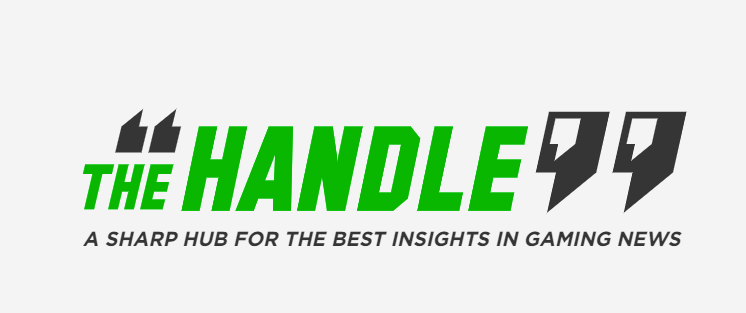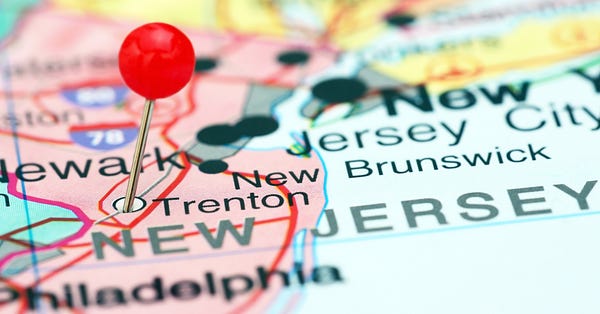Edition 23: A Natural Experiment: Competition vs. Limited Operators. What can we learn?
Which model makes the most sense for bettors, sportsbooks, and states
Happy Monday and Happy Thanksgiving Week! Edition 23 and future editions of The Handle will be released in partnership with Wagers.com, we’re incredibly excited to be a part of their family of high-quality newsletters. Go check out the site!
Let’s make those brutal family dinners a bit more tolerable by getting some action down on some terrible football. We are more than looking forward to it. In today’s edition, we are diving into the policy implications of opening up competition for many operators in one state vs few, and whether consumers have really been able to reap the benefits of competition thus far.
Let’s start by getting the lay of the land. Thus far, 32 States + Washington D.C. have legalized and launched sports gambling, meaning that in some capacity, I can fire up my computer or phone or go to a retail betting location, and get some action down on whatever I choose. States thus far have legalized sports betting in slightly different flavors with different taxation structures and different procedures for entering the market. Thus, my experience in placing a bet may be similar in New Jersey, or Connecticut where I (David) currently am, but the number of operators I can bet with, the taxes they pay, and whether they are associated with Native American tribes is something that varies widely across the country.
In economics, we refer to this as a “natural experiment” where we get to measure the efficacy and impact of different policies. Basically, we hope that everything is similar enough across two different states to the point where the only appreciable difference in their sports betting market is one (or maybe two) key regulations that cause slightly different outcomes. State lines are relatively arbitrary in places that have similar demographics and wealth and as a result, enable us to make fair comparisons across policy decisions.
Quickly, there are two major routes we can look at that will help us make a decision about where policies may differ. First, we could look at overall state tax revenue per unit of population adjusted by when sports gambling was legalized in a different state. Theoretically, these should be relatively similar across states with similar levels of wealth and engagement with sports, so if one policy system is preferable to another, we may be able to see it by looking at different states. Second, we can look at the betting experience. When I say experience, I mean everything from availability of bonuses, to standard vigorish paid by bettors, to the literal user interface bettors use.
Now, last week we looked at taxes. Today, we are going to look at literally how many operators are allowed into any one state at a time. This varies the most across states, with some states having just one operator and others like New Jersey having more than 20! As a quick note, we strongly recommend line shopping, or looking across different books to see where the best price on any given bet is (read our origin story here to see how much we care!), but we are not going to focus on that for the purpose of this analysis. Obviously, having more operators means there are more unique lines and more opportunities to find value, but today we are taking the position of someone who isn’t necessarily concerned with line shopping, but rather with the overall betting experience.
Intuitively, we would expect states with more operators to have better outcomes for bettors. More competition for a limited number of bettors means that operators have to do more to get bettors in the door and hold on to their action.
Let’s take a look at both ends of the spectrum in terms of the number of mobile operators and its impact on adjusted sportsbook revenue for a few states. Adjusted sportsbook revenue accounts for the money spent on promotions, free bets, etc. Michigan, Pennsylvania, and New Jersey all boast more than 15 mobile operators available for bettors. On the contrary, in Washington D.C., New Hampshire, and Montana, the mobile sportsbook scene is controlled by either the state lottery or an independent monopoly (DraftKings in NH). Take a look at a snapshot of this years Gross Sportsbook Revenue in these states:
Yes, we understand the maturity and size of markets like New Jersey and Pennsylvania and the impact of that on their massive numbers. The number of bettors in our top three states inflates the GGR numbers to a level the latter three can’t compete with. The comparison is more to show the potential for markets to generate GGR with a more open and capitalistic system in place, welcoming more than 1 mobile operator.
Unfortunately, even in high competition states, we haven’t seen anyone drop standard vig on NFL Sundays, nor have we seen massive innovation on the product front. In fact, the Fanduel I get in CT when I am at college where there are only three legal operators is perfectly equivalent to the Fanduel in New Jersey where there are limitless options for me to bet with.
There are two possible explanations for why states with more operators are finding greater success. The first is that these states have simply been more swamped with advertising. This means that they are better at converting the average fan into a bettor because there are more opportunities for the average fan to engage with betting and overcome the key hurdle of depositing with a sportsbook for the first time. The second is that it’s actually a case of reverse causality. Operators pushed harder for states where they felt they were likely to find success to adopt a model that allowed for the entrance of multiple operators. To some extent, this is certainly true. Flexing a political muscle to ensure inclusion in a state like Pennsylvania is much more important than a state like Montana, but we have still seen operators get upset at things like New Hampshire’s granting of a pure monopoly to DraftKings.
So where does that leave us? Are bettors unambiguously better off in states with multiple operators? Are states better off letting in multiple operators?
The answer to the first question is a clear yes, for no other reason than the importance of line shopping. The second reason bettors are better off is the existence of a multitude of bonuses. When there are more options, operators find customer acquisition harder and when they do, they are likely to increase the incentives for depositing on for the first time. We doubt that will be sustainable, but might as well enjoy it while it lasts! Ideally, we’d love to do an analysis to see whether the marginal bettor, or the threshold for making a deposit for the first time, falls in a state with multiple operators, but do not have the data available to draw those conclusions.
From our point of view, policy makers in states seem unambiguously better off with allowing multiple operators. The first is that it seems to be associated with increased handle. Increased handle and increased wins for operators mean increases in tax revenue for the politicians. It also allows politicians to tout the importance of competitiveness in local elections, something any American will be able to resonate with.
Obviously, there are a few questions here that need to be answered to garner the full impact of a multi-operator approach. Namely, will the revenue and handle stay comparatively higher as the market matures and people trickle into betting in smaller operator states? Will the bettors who were enticed by high bonuses and levels of advertising be sticky? And of course, will Gen-Z adopt betting onshore legally with these regulated books? Only time will tell, and that is the beauty of the natural experiment in front of us. We prefer multiple operators, and really would like to see some more differentiation on the product front including the influx of exchanges like Sporttrade and Prophet Exchange coming to New Jersey soon. Someone take the plunge and deal better than -110! We are excited to see the results of these policies to guide future decisions.
Miscellaneous Content Consumption
Press
IGT is planning to spin out its sports betting business, the tech company announced Tuesday. Brad Allen with Legal Sports Report has more here.
A.J. Perez of Front Office Sports penned a piece about Twitter leaning further into the sports betting space to generate user growth. Posts on football betting are up 22% and fantasy football-related tweets are up 11%. Read more here.
The NBA took a 3% equity stake in Sportradar on Wednesday with the data firm set to become the league’s official provider of NBA data in the 2023-24 season. Brad Allen with Legal Sports Report details the partnership here.
Twitter
Pods
Matthew Davidow of Deck Prism stopped by Bet The Process for Season 5, Episode 15. Check it out below:
Opportunities







